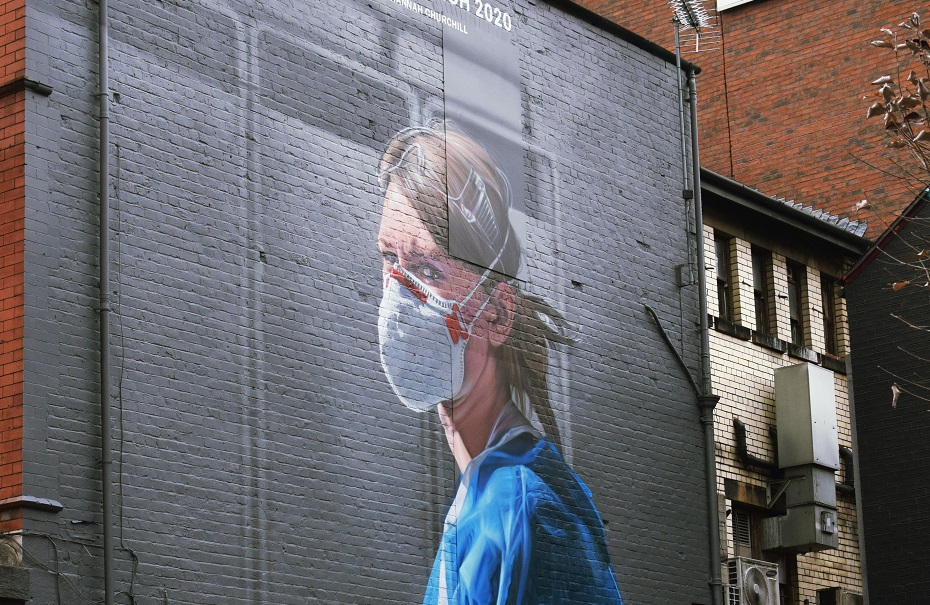UPMC hopes in-house staffing agency will help solve nursing crisis

December 17, 2021
UPMC is upping its game in the ongoing saga to recruit nurses by launching what it’s billing as an in-house travel staffing agency.
The Pittsburgh-based academic health system aims to recruit—both internally and externally—about 800 nurses and 13 surgical technicians into its travel program. Leaders there say they hope giving workers this option will add one more tool to their recruitment toolbox. Unlike a typical staffing agency, this one will only serve UPMC’s 40 hospitals and other facilities.
“This is bold. This is new. We’re going to try it,” said Tami Minnier, UPMC’s chief quality and operational excellence officer. “We’re going to learn and figure out our best solutions as we navigate this.”
UPMC has lost nurses to the travel industry, an especially devastating trend as the system weathers a crushing nurse shortage, Minnier said. Pennsylvania’s governor on Wednesday requested the Federal Emergency Management Agency send “strike teams” for hospitals and other healthcare providers.
The goal is to incentivize UPMC employees who want to try travel nursing to do so at UPMC. That way, she said, they can keep their benefits, retirement plan, seniority and can return to the same position and location when they’re done. UPMC will relocate workers in the travel program every six weeks.
“If you’re able to reinvent yourself but stay in the same company, boy, we think that’s a real win-win,” Minnier said.
UPMC also hopes to attract nurses from other parts of the country to Pennsylvania, where most of its 40 hospitals are located. The system also has one hospital in New York and one in Maryland.
UPMC will pay nurses in the program $85 an hour. Surgical technicians will make $63 an hour. Minnier said she thinks those rates will be competitive with traditional staffing agencies. Even though national staffing agency rates are currently averaging $200 to $225 per hour, nurses get significantly less than that, she said.
“The bigger portion of it is going to the profits of these companies,” she said. “I’m all for competing, but we also in healthcare right now are in the middle of the pandemic. We have a social responsibility in healthcare to take care of people.”
Not all staffing agencies offer benefits, either, so UPMC is betting that will be another incentive.
“Our benefit package is pretty rich; it’s very solid,” Minnier said. “It adds a significant percentage on top of the hourly rate.”
UPMC is doing this in part because it’s one of the few organizations with the resources to, Adam Seth Litwin, a Cornell University associate professor of industry and labor relations, wrote in an email. UPMC drew about $23 billion in revenue in 2020.
Not only that, UPMC has already tried more targeted recruitment strategies like signing bonuses, and wants to try something big and bold, Litwin said.
“As they work to address their own staffing issues, they are likely to pull some RNs into the recruitment net that don’t want or need to be in the greater Pittsburgh area,” he said. “So they’ve realized, ‘As long as we’ve got this big machine up and running, why not try to get a piece of that action, too?'”
Earlier this week, nurses from UPMC Altoona visited the system’s headquarters in Pittsburgh to address the staffing crisis. The nurses, members of SEIU Healthcare Pennsylvania, encouraged a focus on recruitment and retention, not incentives and travel nurses.
UPMC’s Minnier said the system has pulled out all the stops in terms of recruitment. In the last six months, it has added sign-on bonuses, extra shift bonuses and incentives for working weekends and off-shifts. She said not all unions accept those benefits.
Jodi Faltin, a registered nurse at UPMC Shadyside in Pittsburgh, said she thinks UPMC could do more around recruitment and retention. Much of the system’s focus to date seems to have been on sign-on bonuses for new nurses, she said.
“But they’re not offering anything for those of us who have been there, who continue to stay,” Faltin said. “When they come up with these plans to recruit and retain people, they’re not asking us what would keep us in our positions.”
UPMC’s nurses have asked for higher base pay, higher pay for working nights and weekends and for responding to emergencies in the hospitals, like in-house strokes, Faltin said.
Faltin, who is working to unionize more of UPMC’s hospitals through SEIU Healthcare Pennsylvania, said she’s skeptical this new staffing agency adds much value beyond UPMC’s existing program that allows nurses to accept shifts at different hospitals throughout the system.
“I’m also confused where they think they’re going to get all of these nurses,” she said. “I know that some units might have more staff, but I don’t think there are nurses just sitting around with nothing to do.”
